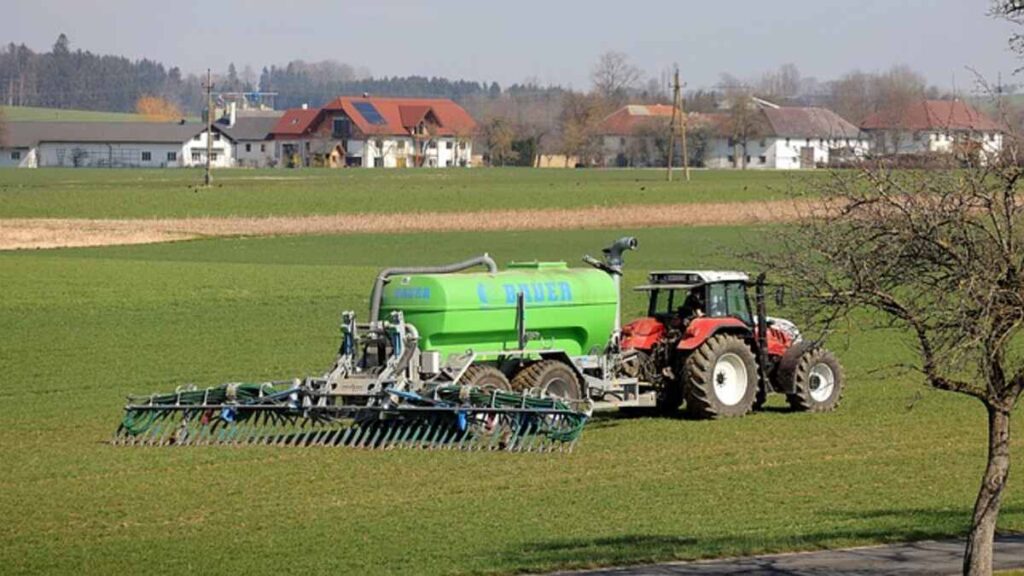Introduction
Do you know the jobs in agribusiness that are currently the most in demand? As traditional markets continue to be disrupted, it’s more important than ever to understand which fields and roles have growth potential. While there may be intense competition for some of these positions, their importance is such that employers remain willing to fill them with quality talent – and those who master them can increase their worth almost overnight. In this blog post, we’ll explore five major areas within agribusiness where job openings abound so you can find irresistible opportunities that match your skillset and ambition.
What is Agribusiness?
Agribusiness refers to commercial ventures related to agricultural production and distribution. It is a vast industry encompassing all aspects of food production, including farming, harvesting, storage, processing, packaging, and distribution. Agribusiness focuses on profiting from agricultural activities by ensuring that the end product reaches consumers promptly and efficiently. This requires a deep understanding of the market demand for various types of foods and the technical expertise needed to manage farms and factories. Agribusiness includes small family-owned operations and large multinational corporations working to meet consumer needs worldwide. As such, it has become an essential component of modern global economies, contributing significantly to job creation and economic growth.
Various agriculture jobs within agribusiness include crop and livestock production, food processing, agricultural engineering, and marketing. The demand for skilled professionals in these roles will increase in the coming years. Furthermore, agribusiness contributes to economic growth and job creation, particularly in rural areas. Thus, pursuing a career in agribusiness can be a rewarding and fulfilling choice.
Jobs in Agricultural Industry
The field of agribusiness encompasses a wide range of careers essential for the efficient and sustainable production, processing, and distribution of agricultural products. Here are five agribusiness jobs that were in high demand at the time:
1. Agricultural Data Analyst:
The role of an agricultural data analyst in today’s farming industry is becoming increasingly important. As farms and agricultural production become more complex, businesses must analyze their data to make informed decisions about planting, harvesting, and selling crops. An agricultural data analyst has the skills to collect and interpret data on crop yields, soil quality, weather patterns, and other factors that affect farm productivity. They then use this information to identify patterns or trends to inform better decision-making, from crop strategy to budgeting and optimizing operational processes. The role requires strong analytical skills as well as domain knowledge in agriculture. An agricultural data analyst must be able to work effectively with both technology tools and stakeholders across the business to generate insights that drive growth and competitiveness in the sector.
2. Precision Agriculture Specialist:
As the world’s population grows, food production demand also increases. Precision agriculture specialists are critical in helping farmers maximize efficiency and profitability with cutting-edge technology. These professionals integrate various data sources such as GPS, drones, and satellite imagery to assess everything from soil nutrient levels to crop health. They then analyze this data to provide insights and recommendations that help farmers optimize land usage, reduce waste, and increase yields. This position requires excellent analytical skills and agriculture, science, and technology knowledge. Strong communication skills are also essential as precision agriculture specialists work closely with farmers to ensure they understand the technical aspects of these tools and processes. Overall, precision agriculture specialists are a driving force behind sustainable farming practices that meet growing global demands while minimizing environmental impact.
3. Sustainable Agriculture Manager:
As the importance of sustainable agriculture continues to grow in our society, the role of a Sustainable Agriculture Manager becomes increasingly vital in ensuring the success of agricultural practices that provide for both environmental and economic sustainability. These managers develop and implement holistic farming systems that promote biodiversity, soil conservation, and efficient irrigation and fertilization techniques as part of their responsibilities. They are also tasked with monitoring land-use patterns, crop rotations and diversification, pest-management methods, and water management strategies while keeping track of budgets and resources. In addition to their knowledge of agronomy, Sustainable Agriculture Managers must also be adept at utilizing technology-based tools such as GIS mapping or climate forecasting software.
Ultimately, the goal is to create farming systems that prioritize long-term ecological health while producing consistent yields over time — a delicate balance requiring both technical expertise and an acute awareness of environmental impact.
4. Agricultural Engineer:
As a vital figure in agriculture, an agricultural engineer is responsible for designing and implementing innovative solutions to modern farming challenges. These professionals must possess an in-depth understanding of both engineering principles and agricultural practices. They work closely with farmers, scientists, and policymakers to develop new technologies that enhance crop yields, decrease waste, reduce environmental impact, and improve the efficiency of farming operations. Agricultural engineers employ advanced tools such as remote sensing technology, geographic information systems (GIS), and computer modeling to represent agricultural landscapes visually, identify potential issues before they arise, and analyze data collected by sensors and drones to make informed decisions about resource allocation at various stages of crop development. Ultimately, it is up to these dedicated experts to help shape the future of agriculture through a combination of technical know-how and creative thinking.
5. Farm Manager:
A farm manager is a professional in the agriculture industry who oversees the day-to-day operations of a farming operation. They are typically responsible for managing staff, planning and coordinating planting, harvesting, and other farming activities, managing budgets and finances, and maintaining equipment and facilities. A successful farm manager has extensive knowledge of crops, soils, irrigation systems, animal husbandry, and pest control. Farm managers must also be proficient in business management techniques such as inventory control, bookkeeping, marketing strategies, human resources management, and logistics coordination. Additionally, they should have strong leadership skills to effectively manage teams of workers in carrying out complex agricultural tasks while prioritizing worker safety and ensuring compliance with agricultural regulatory requirements. In summary, Farm managers should possess diverse skill sets that enable them to coordinate all aspects of farming activities efficiently to achieve optimal productivity while maintaining profitability for the enterprise.
Please note that the demand for specific jobs may vary over time and across different regions. It’s advisable to conduct updated research or consult with industry experts to get the most accurate and current information on in-demand agricultural business careers.

FAQs
How do I go about finding job opportunities in this field?
If you are looking for job opportunities in a specific field, there are several strategies you can employ to maximise your chances of securing a position. The first step is to conduct thorough research on the industry, including current trends and the top companies in the field. Networking with professionals in the industry, attending conferences or trade shows, and joining relevant professional organisations can all help expand your network and gain insider knowledge about potential job openings. Additionally, regularly checking online job boards and company websites for new postings is essential. When applying for jobs, tailor your resume and cover letter to each specific opportunity and showcase relevant skills and experiences. Finally, consider seeking a career coach or mentor to guide you through the job search process and provide personalised advice on standing out as a candidate.
What types of companies hire professionals with expertise in agribusiness?
Companies across various industries hire professionals with expertise in agribusiness. Agricultural production companies specialising in crops, livestock, and dairy products seek professionals knowledgeable in agronomy, animal science, or agricultural engineering to manage their operations more effectively. Additionally, firms that provide financing services for farmers and agricultural enterprises require individuals skilled in agricultural lending and risk management. Companies involved in biotechnology also hire professionals with expertise in agribusiness to develop new crop varieties and genetically modified organisms while adhering to regulatory standards. Food processing companies also seek expertise in supply chain management specific to food products. Lastly, local, state or federal government agencies depend on these professionals’ opinions and recommendations concerning the recent challenges facing the agricultural sector, including pandemic outbreaks of disease or climate change issues.
Are there particular areas of specialisation within agribusiness that are particularly in demand?
There is a growing demand for professionals with expertise in various agribusiness areas, particularly in food safety, supply chain management, sustainability and data analytics. With the increasing globalisation of agriculture and the need to produce more food using fewer resources, companies actively seek individuals to help them optimise their operations and mitigate risks. Professionals with knowledge of food safety regulations are increasingly sought after as companies seek to comply with increasingly strict legislation to prevent outbreaks and recalls. Supply chain management experts are needed to ensure efficient distribution and delivery of goods while maintaining quality standards. Moreover, there is a growing emphasis on sustainable practices, from producing organic foods to reducing waste which has created a demand for experts in this field. Finally, data analytics professionals are becoming crucial due to an increased focus on digitisation within agribusinesses leading decision-making processes based on data insights rather than assumptions or historical practices. Overall, ample opportunities for specialisation within agribusiness correspond with different sectors critical for growth.
Conclusion
While many people may think of agribusiness as a traditional industry, it clearly has significant potential for the ambitious and talented. Managers, engineers, insurers, and even marketers are all in high-demand positions, and this trend looks to continue. Now is an ideal time to enter into agribusiness with one of these job titles or something else entirely. With the right attitude and qualifications, you can set yourself up for success with a career in the agribusiness industry. Agribusiness is changing and growing, offering those willing to put in the effort a world of opportunity as we advance. It’s safe to say that this sector isn’t showing any signs of slowing down. So if you are interested in agricultural or food production professions, now is the time to explore your options and get involved!
Autobiography
Eric Reyes is a passionate thought leader, having been featured in 50 distinguished online and offline platforms. His passion and knowledge in Finance and Business made him a sought-after contributor providing valuable insights to his readers. You can find him reading a book and discussing current events in his spare time.
Read also: How to Make Your Own Job Listings on Indeed



